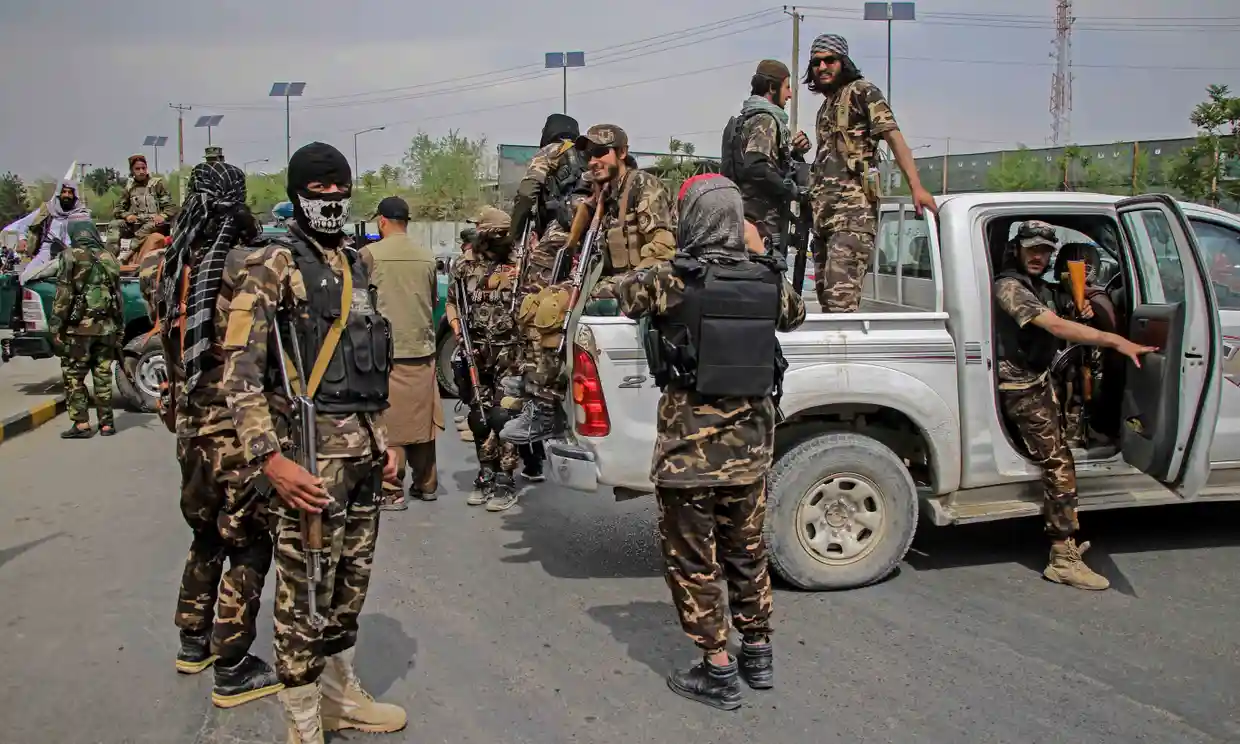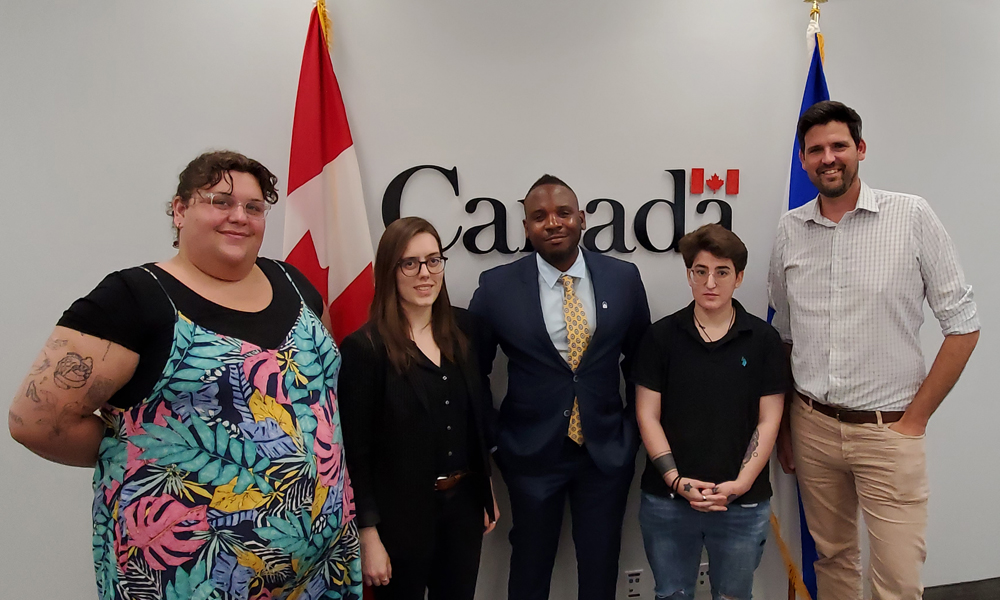Rainbow Railroad seeks governments’ support in aiding LGBTQ refugees
Colin Stewart is a 45-year journalism veteran living in Southern…
The LGBTQ refugee assistance group Rainbow Railroad has received more than 6,000 pleas for help from Afghanistan since the U.S. pullout in August 2021. To assist so many LGBTQ refugees, the Canada-based organization needs governments’ help, says Kimahli Powell, chief executive.
CLICK to receive an email notice of each new article on Erasing 76 Crimes

Powell explains the situation in the following article from IN Magazine:
Understanding The Humanitarian Crisis In Afghanistan
Why Canada needs new refugee programs to help LGBTQI+ people at risk
By Kimahli Powell
I will never forget meeting Aseer, a trans man who grew up in Kabul. Although he dealt with challenges growing up in a conservative environment, he found community with other LGBTQI+ people at university. But when the Taliban returned to power in Afghanistan, his work as an activist made him a target. He went into hiding and reached out to Rainbow Railroad. We helped Aseer make it out of Afghanistan to a safe house in Pakistan that Rainbow Railroad had helped establish. He shared his story of persecution with me from that safe house on one of two visits I have made since the takeover of the Taliban and the withdrawal of coalition forces from Afghanistan in August 2021. We were eventually able to help Aseer make it out of Pakistan to Canada, where he has continued his activism. He joined Rainbow Railroad and met Sean Fraser, Canada’s minister of immigration, refugees and citizenship, to advocate for increased pathways to safety for LGBTQI+ Afghans.

We didn’t initially intend on being advocates for such resettlement from Afghanistan, especially in the middle of a humanitarian crisis. Rainbow Railroad’s expertise expanded from doing individual case work to responding to crisis situations like Chechnya, Egypt and Uganda. However, engaging in a geopolitical crisis situation like that in Afghanistan was a different level of engagement for us as an organization.
However, in some important ways, we didn’t have much choice. As coalition forces prepared a complete withdrawal, it became clear that the Taliban would take control of Afghanistan, and on August 13, 2021, the Government of Canada released a statement introducing a special program to bring at-risk Afghans to Canada. This special program included “women leaders, human rights defenders, journalists, persecuted religious minorities, LGBTI individuals, and family members of previously resettled interpreters.” Immediately following this announcement, which explicitly mentioned the LGBTQI+ community, our requests for help from Afghanistan skyrocketed. From January to August 2021, Rainbow Railroad received around 50 requests for help from Afghanistan. Between August 13 and August 31, we received nearly 500. Since then, more than 6,000 people have reached out to Rainbow Railroad from Afghanistan, seeking assistance.
During that crucial period, and leading up to today, we have heard reports of deeply troubling violence and persecution towards LGBTQI+ Afghans.
Details of these accounts are harrowing and are summarized in a recently published report from Rainbow Railroad. Individuals reported surveillance from friends and family, beatings and other forms of violence in private and public settings, and an environment of complete impunity for members of the Taliban. Many LGBTQI+ Afghans are still in hiding, unable to be in contact with their loved ones because of the risks they face.
This is why we needed to respond, and why we needed to advocate to the Government of Canada to step up and help the LGBTQI+ community cited in the government’s announcement. Rainbow Railroad functions primarily as a service-providing organization, but time and time again, when faced with a crisis situation, we have found that governments have limited tools when they need to respond quickly. The lack of a proactive response strategy generally leads to our advocacy, because of the risks faced by individuals like Aseer.
Since its establishment as a charity, Rainbow Railroad has been dedicated to finding new pathways to safety for at-risk LGBTQI+ people, and in this effort we have continuously asked for the Canadian government’s support. In the lead-up to the federal election in September 2021, Rainbow Railroad issued a three-part call to action to the Canadian government, which specifically outlined the need for this kind of partnership.
The situation in Afghanistan, and the lack of routes to safety, meant we needed to further these advocacy efforts. In May 2022, Rainbow Railroad launched the #SafeWayOut campaign, which garnered thousands of signatures on a petition in support of our efforts to help LGBTQI+ Afghans at risk. I also had the opportunity to directly address Canada’s Special Parliamentary Committee on Afghanistan. These interventions have seen some success; in December 2022, the Canadian Government announced a partnership with Rainbow Railroad that will bring 600 Afghans to Canada.
But while Rainbow Railroad has successfully helped a significant number of people in the region, the requests far outweigh the number of people we have been able to help. A flexible, LGBTQI+-specific refugee stream that can be responsive to international crises would empower our organization to meet the growing need we are facing.
In February 2022, we watched as Russian forces invaded Ukraine, and another major humanitarian crisis began to unfold that affected the LGBTQI+ community. The reality is that during a time where there are more than 100 million displaced people around the world, we are constantly faced with numerous global challenges. When the next international crisis hits, we need to be prepared to respond to new requests for assistance, and to maintain our ongoing work. This means Rainbow Railroad needs proactive support from governments that are willing to take a leadership role in supporting LGBTQI+ refugees.
When talking about his new life in Canada, Aseer said: “I feel safe here finally. After 26 years, I feel safe.” Every LGBTQI+ person deserves to feel safe, and to live a life free from persecution. Rainbow Railroad needs allies in the fight for global LGBTQI+ freedom, and we’re asking our government to step up.
KIMAHLI POWELL has a wide range of experience in the not-for-profit sector and has spent more than 20 years advocating for social justice, youth, and arts and culture. Since joining Rainbow Railroad as CEO, Kimahli has led the organization through transformational growth. Kimahli holds an honorary Doctor of Laws from the University of Victoria and was listed in Out Magazine’s Out 100 profile of influential LGBT people in 2018.




